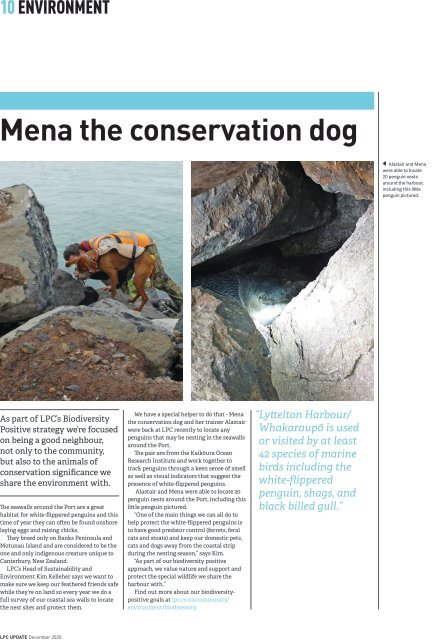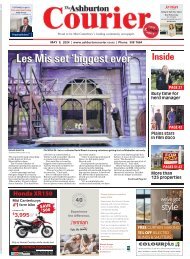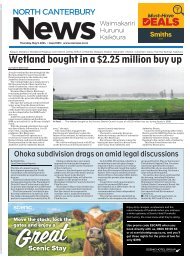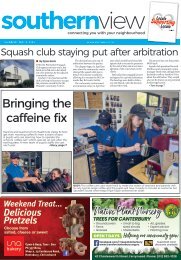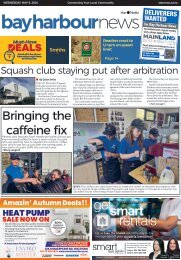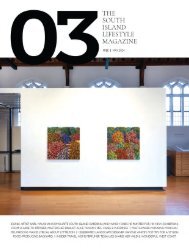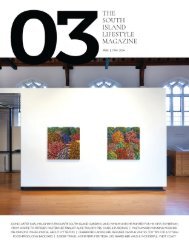Bay Harbour: December 16, 2020
You also want an ePaper? Increase the reach of your titles
YUMPU automatically turns print PDFs into web optimized ePapers that Google loves.
0 ENVIRONMENT<br />
LPC UPDATE <strong>December</strong> <strong>2020</strong><br />
ena the conservation dog<br />
Alastair and Mena<br />
were able to locate<br />
20 penguin nests<br />
around the harbour,<br />
including this little<br />
penguin pictured.<br />
As part of LPC’s Biodiversity<br />
Positive strategy we’re focused<br />
on being a good neighbour,<br />
not only to the community,<br />
but also to the animals of<br />
conservation significance we<br />
share the environment with.<br />
The seawalls around the Port are a great<br />
habitat for white-flippered penguins and this<br />
time of year they can often be found onshore<br />
laying eggs and raising chicks.<br />
They breed only on Banks Peninsula and<br />
Motunau Island and are considered to be the<br />
one and only indigenous creature unique to<br />
Canterbury, New Zealand.<br />
LPC’s Head of Sustainability and<br />
Environment Kim Kelleher says we want to<br />
make sure we keep our feathered friends safe<br />
while they’re on land so every year we do a<br />
full survey of our coastal sea walls to locate<br />
the nest sites and protect them.<br />
We have a special helper to do that - Mena<br />
the conservation dog and her trainer Alastair<br />
were back at LPC recently to locate any<br />
penguins that may be nesting in the seawalls<br />
around the Port.<br />
The pair are from the Kaikōura Ocean<br />
Research Institute and work together to<br />
track penguins through a keen sense of smell<br />
as well as visual indicators that suggest the<br />
presence of white-flippered penguins.<br />
Alastair and Mena were able to locate 20<br />
penguin nests around the Port, including this<br />
little penguin pictured.<br />
“One of the main things we can all do to<br />
help protect the white-flippered penguins is<br />
to have good predator control (ferrets, feral<br />
cats and stoats) and keep our domestic pets,<br />
cats and dogs away from the coastal strip<br />
during the nesting season,” says Kim.<br />
“As part of our biodiversity positive<br />
approach, we value nature and support and<br />
protect the special wildlife we share the<br />
harbour with.”<br />
Find out more about our biodiversitypositive<br />
goals at lpc.co.nz/community/<br />
environment/biodiversity.<br />
“Lyttelton <strong>Harbour</strong>/<br />
Whakaraupō is used<br />
or visited by at least<br />
42 species of marine<br />
birds including the<br />
white-flippered<br />
penguin, shags, and<br />
black billed gull.”


